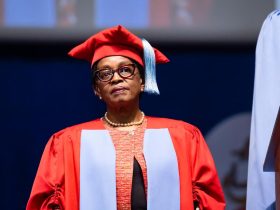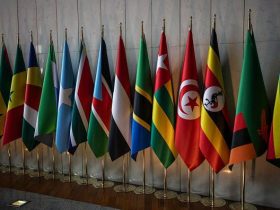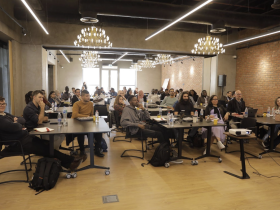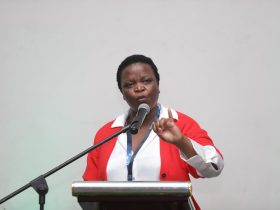An Annual Report on Economic Freedom of the World (EFW) is produced by Canada’s Fraser Institute in co-operation with more than 90 co-publishers based in as many countries.
The information is readily available to politicians in all the countries whose economies are analysed in the annual publications and provide clear guidelines to politicians in those countries as to what needs to be done to improve the quality of the policies they adopt. If it is the intention of politicians to improve the lives and incomes of the people who depend on them for clear direction they cannot do better than to adopt economic policies that have proved highly successful in other countries.
Mauritius is a country in the African sphere that has set an example to mainland African countries as to what economic policies they should consider adopting. For example, back in 1980, the Mauritian top marginal income tax rate was 50%. By 2010 that rate had been cut to 15%. In the 2020 rankings, South Africa ranked 99 out of a total of 163 countries ranked, whereas Mauritius ranked 9th. In 1980 South Africa had ranked 55th and Mauritius 63rd. Transformation of a country’s economy in a positive direction requires the adoption and implementation of sound economic policies and support from the voting public
With national elections approaching, South Africa’s political parties should be challenged by voters and all and sundry with an interest in the future of South Africa to put forward economic policies that they are confident will do a “Mauritius” on the South African economy and take it in due course into the top ten economically free economies in the world.
We have noted that the Hong Kong economy changed radically in a positive direction because an astute British economist applied what he described as a policy of “positive non-interventionism”. In South Africa’s case what is sorely needed is for the means of production of goods and services to be transferred from political control to ownership and control entirely in the hands of private owners who provide the capital, hire and train capable managers, carry the risks, benefit from their successes, and pay the costs of their failures. In a system that imposes all these risks and costs on the taxpayers, with the major economic decisions being taken by politicians and not private owners of the means of production, nothing but disaster should be expected.
Challenge the political parties!
South Africa is in need of drastic change and the members of the various political parties need to do more than claim that they will do a better job than the current majority party coalition in dealing with the serious problems of mass unemployment, failing service delivery, crumbling infrastructure, electricity generation and delivery failure, crime spiralling out of control, and a host of other matters that are not being dealt with. It could prove useful for voters to challenge the political parties to lay out their plans for an economic renaissance. What policy changes will they bring to bear on the problems that are destroying the country?
How the Czech Republic brought positive changes to the lives of its citizens
Emulating successes such as those achieved by the Czech Republic will require some effort from SA politicians. If they wish to attract votes from citizens, they need to put forward proposals for the adoption of economic policies that have been shown to produce highly positive economic results in other countries. Czechoslovakia was an uneasy partnership of Czechs and Slovaks for 100 years until they split once again into two nations on 1 January 1993. Positive economic results are being experienced by both countries. The EFW ranking of the Czech Republic has improved from 49th in 2000 to 17th in 2020 while the Slovak Republic is rated at a more modest 54th. By comparison South Africa was ranked at 52nd in 2000 but has slid down the rankings to be ranked at 99th out of the 163 countries ranked in 2020.
Will devolution of political power become an essential element of peace and prosperity in South Africa?
Czechoslovakia had only two nations to contend with and found it necessary to split into two independent nations to bring about greater peace and prosperity to their people. South Africa is made up of one of the most complex gatherings of people on earth. Will that in due course require special political structures to bring about lasting peace and much needed economic development?
Attempts were made in the past to create political structures to address the problem of South Africa’s extreme diversity. The creation of the separate governing powers in the “homelands” formed part of these attempts. In the process of negotiation of the new South African constitution, these independent political structures were dissolved, and the underlying complex issue of diversity has not been adequately addressed.
South Africa’s official languages and the country’s diversity
A listing of South Africa’s official languages as set out in the constitution provides an insight into the extent of South Africa’s diversity. The official languages are Sepedi, Sesotho, Setswana, siSwati, Xitsonga, Afrikaans, English, isiNdebele, isiXhosa, and isiZulu. Recognition is also given in the constitution to German, Greek, Gujarati, Hindi, Portuguese, Tamil, Telegu, Urdu, Arabic, Hebrew, and Urdu. Devolution of political power to the local level becomes an essential part of the efficient provision of services to a society of such diversity.
Diversity and devolution of political power
There is a great deal for political decision-makers in a country with a highly diverse population, to gain from devolving decision-making power to lower and dispersed levels of authority. Local decision-makers, being closer to the day-to-day activities in their areas, have more first-hand information than those at higher levels of government and would be expected to have a greater incentive in managing local economic issues with care and efficiency.
South African politicians from all parties should pay attention to the information available to them in the Economic Freedom of the World annual reports. For instance, Albania has increased its level of economic freedom and taken its world ranking from 70th in 2000 to 26th in 2020. The consequence is an improvement in its GDP per capita (constant 2015 US$) from US$1,960.9 to US$4,830.6, an increase of 59.41% an example for South Africa and other countries to follow if they wish to improve economic conditions and the lives of their citizens.




























Leave a Reply